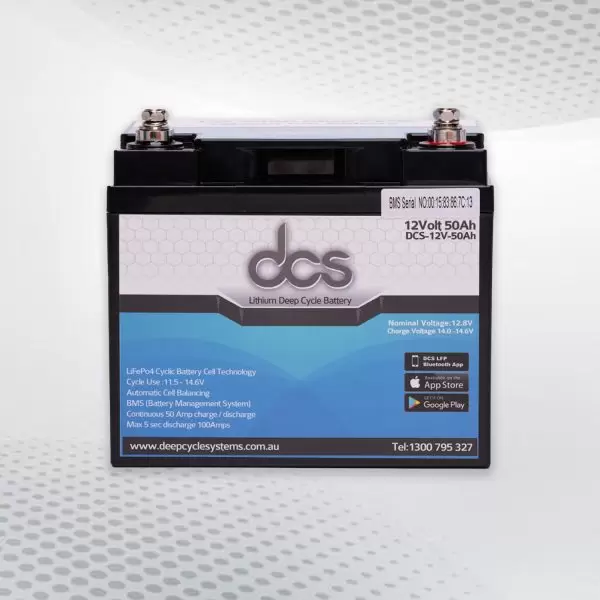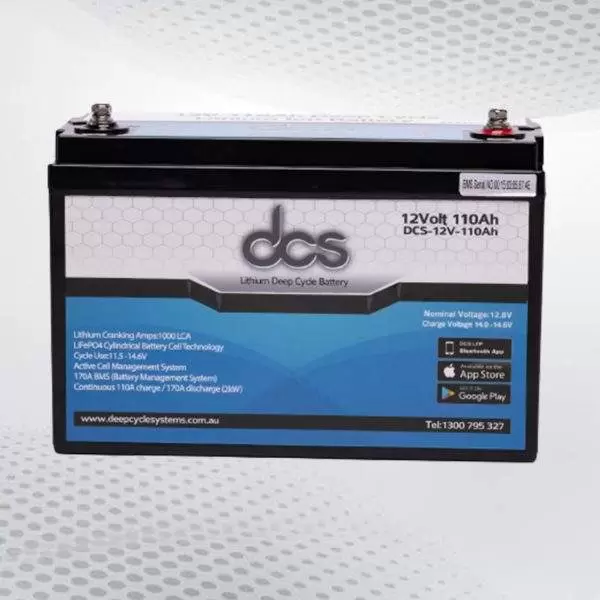Lithium batteries have become increasingly popular in recent years and with good reason. They are more efficient and safer than traditional lead-acid batteries and can also be used to create powerful and reliable energy storage solutions. In this blog post, we will explore the potential of lithium battery packs in energy storage applications and how they can help power homes and businesses in the future.
What Are Lithium-Batteries And Why Are They Important?
Lithium batteries are rechargeable batteries that have gained significant attention and popularity in recent years. But what exactly are they, and why are they important? Lithium batteries are a type of battery that uses lithium ions to store and release electrical energy. They are commonly used in various electronic devices, from smartphones and laptops to electric vehicles and even power grids.
One of the key reasons why lithium batteries are so important is their high energy density. This means they can store a lot of energy in a small, lightweight package, making them ideal for portable devices and electric vehicles where size and weight are crucial. In addition, lithium batteries have a longer lifespan than other battery types. They can endure more charge-discharge cycles, making them more durable and cost-effective in the long run.
The Advantages of Lithium-Battery Packs
Lithium-battery packs offer many advantages, making them a superior choice for energy storage solutions. One of the key advantages is their high energy density, which allows for storing a large amount of energy in a compact and lightweight package. This makes them ideal for portable applications such as smartphones, laptops, and electric vehicles. Additionally, lithium-battery packs have a longer lifespan compared to other battery types.
They can endure more charge-discharge cycles, making them more durable and cost-effective in the long run. This means fewer battery replacements and reduced environmental impact. Another advantage is their fast charging capabilities. Lithium batteries can be charged faster than other battery types, saving valuable time and improving user convenience. Furthermore, lithium-battery packs have a lower self-discharge rate, meaning they can retain their charge for longer periods when not in use.
How Do Lithium-Battery Packs Work In Energy Storage Systems?
Lithium-battery packs are essential components of energy storage systems. They work by harnessing the power of lithium ions to store and release electrical energy. The battery pack consists of individual lithium-ion cells connected in series or parallel to achieve the desired voltage and capacity. When the battery is charged, lithium ions move from the positive electrode (cathode) to the negative electrode (anode) through an electrolyte.
During discharge, the process is reversed, and the lithium ions move from the negative electrode back to the positive electrode, generating an electric current that can be used to power devices or store energy. Lithium-battery packs incorporate protection circuits that prevent overcharging, over-discharging, and excessive current flow to ensure safety and efficiency.
These circuits monitor and control the battery pack’s voltage, temperature, and current to maintain optimal performance and prevent damage. Lithium-battery packs in energy storage systems can be connected to solar panels or the electrical grid to store excess energy during low demand and release it when demand is high. This allows for a more efficient and reliable energy supply, reducing reliance on fossil fuels and contributing to a more sustainable future.
The Impact of Lithium Battery Technology on the Renewable Energy Industry
Lithium-battery technology has had a profound impact on the renewable energy industry. As the world strives towards a more sustainable future, efficiently storing and utilising energy from renewable sources becomes crucial. This is where lithium-battery packs come in. With their high energy density, lithium-battery packs enable the storage and release of excess energy generated from solar and wind power.
This means that instead of relying solely on fossil fuels, renewable energy can be harnessed and used when demand is high, reducing the strain on the power grid. Moreover, the advancements in lithium battery technology have made grid-scale energy storage more feasible and reliable. With the ability to store large amounts of energy, lithium-battery packs can smooth out the fluctuations in renewable energy supply, ensuring a steady and continuous power source.
The impact of lithium-battery technology on the renewable energy industry goes beyond just energy storage. It has also spurred the growth of electric vehicles, which are becoming increasingly popular as a more sustainable mode of transportation. Lithium-battery packs are crucial in powering these vehicles, providing longer ranges, faster charging times, and improved performance.
How to Maximise the Lifespan of Lithium-Battery
To ensure that your lithium-battery have a long and reliable lifespan, several important factors must be considered. First and foremost, it’s essential to charge and discharge your batteries properly. Avoid overcharging, leading to excessive heat buildup and potential cell damage. Similarly, avoid deep discharging, as it can cause irreversible damage to the battery’s capacity. Another crucial aspect is maintaining the proper temperature. Extreme heat or cold can significantly impact the performance and longevity of lithium batteries.
Keep your batteries in a cool, dry environment and avoid exposure to extreme temperatures. Regularly monitoring and maintaining the battery’s voltage and state of charge is also important. A battery management system can help keep track of these parameters and prevent over-discharging or overcharging. Lastly, when not in use, storing your lithium batteries at around 50% charge and in a cool environment is advisable. This helps prevent self-discharge and keeps the battery in optimal condition.
Future Developments and Applications for Lithium-Battery Packs
As technology advances, future developments and applications for lithium-battery packs are incredibly promising. Researchers and engineers are constantly working to improve lithium batteries’ energy density, charging capabilities, and lifespan, opening up new possibilities for their use in various industries. One of the areas where you can expect to see significant developments is electric vehicles (EVs).
As the demand for EVs continues to rise, manufacturers are investing heavily in lithium-battery technology to improve range, charging times, and overall performance. This means that we can expect to see even more efficient and powerful EVs on the market in the future, making electric transportation more accessible and sustainable. In addition to EVs, lithium-battery packs are also being explored for use in grid-scale energy storage applications.
This can revolutionise how we store and distribute energy, making our power grids more efficient, reliable, and capable of handling renewable energy sources. Another exciting development is using lithium batteries in portable energy storage solutions, such as power banks and backup generators. These compact and lightweight battery packs can provide reliable power in emergencies or when off the grid, giving us more freedom and flexibility in our everyday lives.
Sustainability in Action
As the demand for renewable energy grows, sustainability becomes more than just a buzzword – it becomes a necessity. Lithium-battery packs are crucial in advancing sustainability by enabling the efficient storage and utilisation of renewable energy. With their high energy density, long lifespan, and fast charging capabilities, these battery packs empower homes and businesses to reduce their reliance on fossil fuels.
Lithium-battery packs are actively contributing to a greener and more sustainable future by harnessing solar and wind energy. The impact of sustainability in action is evident in the reduced carbon emissions, increased energy efficiency, and the overall preservation of our planet.
Exploring Safety Measures for Lithium-Battery Packs
Safety is a top priority for lithium-battery packs, and understanding the necessary safety measures is crucial for their effective use. One key safety measure is the inclusion of protection circuits in lithium-battery packs. These circuits are designed to prevent overcharging, over-discharging, and excessive current flow, which can lead to battery damage or fire hazards.
These circuits ensure optimal performance and safe operation by constantly monitoring and controlling the voltage, temperature, and current of the battery pack. Additionally, it is important to handle lithium-battery packs with care, avoiding physical damage or exposure to extreme temperatures. Proper storage, regular inspection, and following manufacturer guidelines are also essential for maintaining safety.
FAQ’s
1. Are lithium batteries safe?
Absolutely! Lithium batteries are designed with safety in mind. They have protection circuits that prevent overcharging, over-discharging, and excessive current flow. Lithium batteries are safe to use as long as you follow proper handling and storage guidelines.
2. Can lithium batteries be recycled?
Yes, lithium batteries can and should be recycled. They contain valuable materials that can be reused, such as lithium, cobalt, and nickel. Many recycling centres accept lithium batteries, so dispose of them responsibly.
3. How long do lithium battery pack last?
The lifespan of a lithium battery pack depends on various factors, including usage, charging habits, and environmental conditions. However, on average, lithium batteries can last anywhere from 2 to 10 years.
4. Can lithium batteries be used in extreme temperatures?
Lithium batteries are sensitive to extreme temperatures. It’s best to avoid exposing them to excessive heat or cold as it can affect their performance and lifespan. Keep your batteries in a cool and dry environment whenever possible.
5. Can lithium batteries explode?
While it is extremely rare, lithium batteries have the potential to explode or catch fire if mishandled or damaged. However, the risk is minimal with proper care and following safety measures.
Conclusion
In conclusion, lithium-battery packs have revolutionised the energy storage industry. With their high energy density, long lifespan, and fast charging capabilities, they offer a superior solution for powering homes, businesses, and electric vehicles. The impact of lithium-battery technology on the renewable energy industry is evident in the reduced reliance on fossil fuels and the increased adoption of sustainable energy sources. As technology advances, we expect to see even more exciting developments and applications for lithium-battery packs, further contributing to a greener and more sustainable future.



